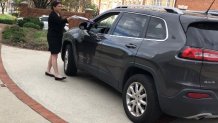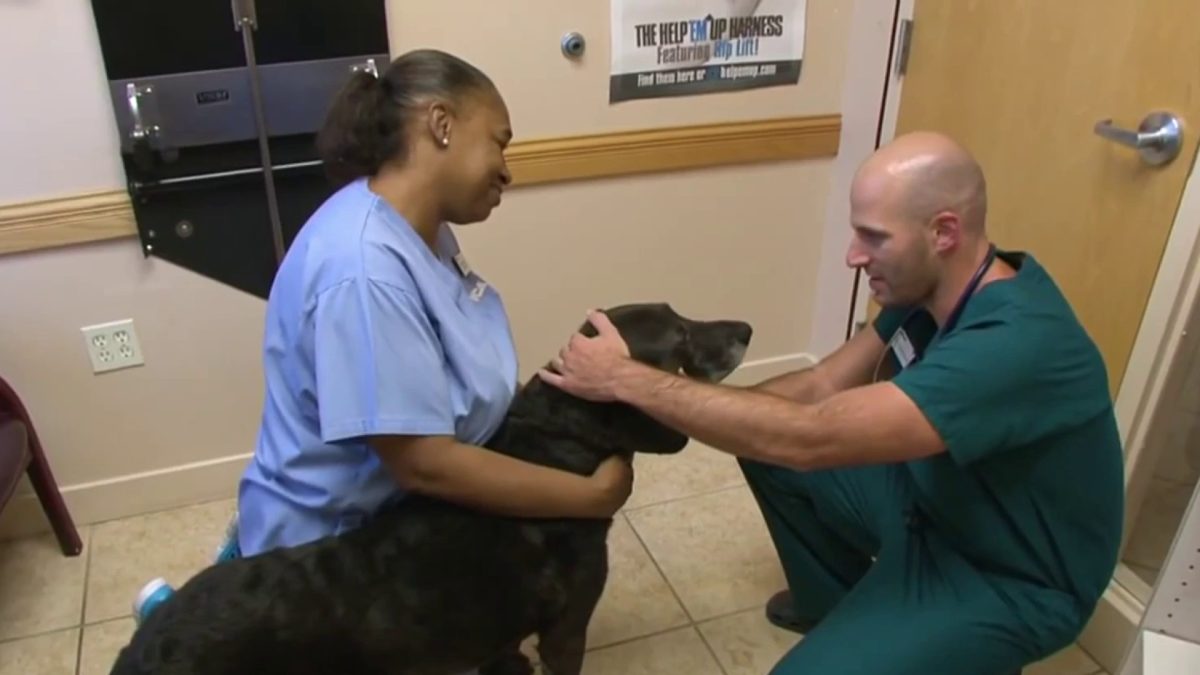After 20 years of working in the same Bethesda, Maryland, office, real estate attorney Joy Siegel has found a use for the large back windows that barely sit above her parking lot. She's basically offering drive-thru mortgage closings.
"Everyone is really just thrilled that they're able to complete their transaction," Siegel said. "Because most people closing today locked in at rates that are not currently available."
Mortgage rates near record lows prompted scores of people to buy or refinance homes just as the coronavirus was arriving in the D.C. area. Until this week, her staff was still meeting with clients inside the office, needing face-to-face signatures on mortgage closing documents.
"We decided to change and just do everybody outside," Siegel said. "We're lucky in our location that we have a little back parking lot."
Now, clients have the option of sitting at a small metal picnic table or remaining in the safety of their own car while signing. D.C. homeowners David and Laura Miller chose the latter while closing on their mortgage refinancing. They just had to pick them up and drop them back off at the window.

"I think with today's technology, we should be able to sign everything electronically. But I understand the security concerns," David Miller said.
News
News updates for Washington, D.C., Maryland and Virginia
On March 30, Maryland Gov. Larry Hogan signed an executive order allowing for electronic notarization of documents, to keep people from having to do that in person. But when it comes to mortgage loans, there's a problem.
"Until the lender changes their rules and allows it, it's not going to happen," said Siegel, adding that most of the banks here are still requiring "wet signatures" from buyers, meaning real ink on a document. Some banks in other states do have closings completely remotely.
The News4 I-Team reached out to the Mortgage Bankers Association, the largest national trade group in this industry. A spokesperson said the holdup is that many banks operate in multiple states and some states have not adopted e-notarization yet.
The group is backing pending federal legislation to require that nationwide, which should encourage the banks to accept electronic signatures and allow fully remote closings everywhere.
"It easily could be done electronically. Easily," Siegel said.
She's grateful to be considered essential but would love to have her employees working remotely. She said that would increase safety for staff and their clients by cutting out the handing of papers back and forth.
She pointed out that settlement companies located inside a big office building might also require employees and clients to open several doors and press buttons in an elevator.
"It's inconvenient, but life has to go on," said Miller, adding that he felt safe with the arrangement at Siegel's office.
But with the rest of daily life on lockdown, he just appreciates being able to get the paperwork done to save on his mortgage.
"We got a nice low rate and locked in," said Miller. "And [it's] one less thing to worry about in this climate."
Reported by Jodie Fleischer, produced by Rick Yarborough, and shot and edited by Jeff Piper.



